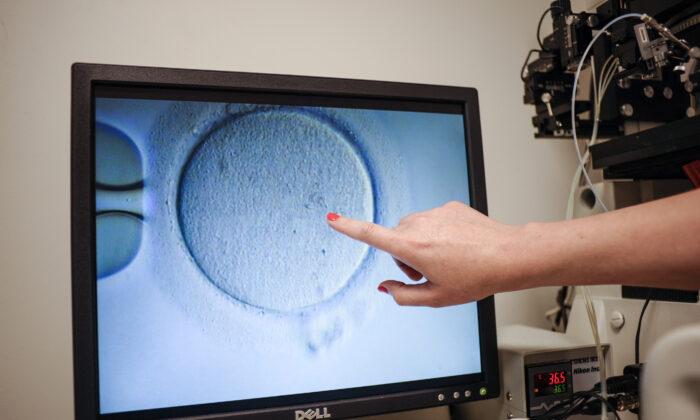The Alabama Supreme Court on Friday declined to rehear its landmark ruling finding that embryos kept outside the uterus are children and are thus covered under wrongful death laws.
In a 7–2 decision, the justices rejected a request to revisit the ruling without comment. Justices William Sellers and Greg Cook dissented, with Justice Sellers writing the dissenting opinion.
In February, the Alabama Supreme Court granted three couples the right to pursue wrongful death lawsuits for their “extrauterine children” after their frozen embryos were destroyed in an accident at a cryogenic facility.
In 2020, a patient wandered into the nursery, removed several embryos, and dropped them when the sub-zero temperatures “freeze-burned” the patient’s hands. This resulted in the death of the embryos. The plaintiffs argued that the clinic failed to secure the nursery, invoking Alabama’s Wrongful Death of a Minor Act.
Clinics Seek Rehearing
The Center for Reproductive Medicine and Mobile Infirmary, who were defendants in the case, requested the justices to rehear the issue in March.The Medical Association of the State of Alabama and the Alabama Hospital Association supported the request by filing a friend of the court brief. They stated that although in vitro fertilization (IVF) services have resumed, the original decision still creates a sense of uncertainty for the medical community.
On March 6, Alabama Gov. Kay Ivey, a Republican, signed a bill that offers protection to those who provide IVF services in response to the ruling. The bill declares that any individual or entity involved in providing or receiving services related to in vitro fertilization cannot be held liable for any damage to or death of an embryo.
“I am pleased to sign this important, short-term measure into law so that couples in Alabama hoping and praying to be parents can grow their families through IVF,” Ms. Ivey said in a statement at the time.
The law does not address whether in vitro embryos are children. That means the legislation still puts IVF providers and their patients “at legal risk,” according to the American Society for Reproductive Medicine.
Sellers Dissenting Opinion
Justice Will Sellers, who wrote a dissenting opinion, expressed concern over the unforeseen consequences of the court’s original decision.She noted that the ruling had a broad impact on people beyond the parties to the case, saying those people “now have a new regime that has been forced upon them for which they had neither input, nor redress, nor a hearing.”
“The majority opinion on original submission also addressed issues and arguments that were never raised in the parties’ initial briefs and never argued by the parties. It is for these reasons that I would have granted the request to conduct oral argument on the applications for rehearing, including providing the various amici curiae an opportunity to voice their concerns, to explain the legal bases of their positions, and to highlight the various loose ends left dangling by this Court’s opinion,” she wrote.
Justice Sellers noted that she would have approved a rehearing of the case, especially for oral arguments.
Justice Cook joined Justice Sellers in dissenting but did not make a comment.
The case was brought by a group of couples against a fertility clinic operated by the Center for Reproductive Medicine. Between 2013 and 2016, the couples approached the center to undergo IVF treatments.
IVF is a procedure used to treat infertility in women. It involves retrieving eggs from the ovaries, fertilizing them with sperm in a lab, and then transferring the resulting embryos to the uterus.







